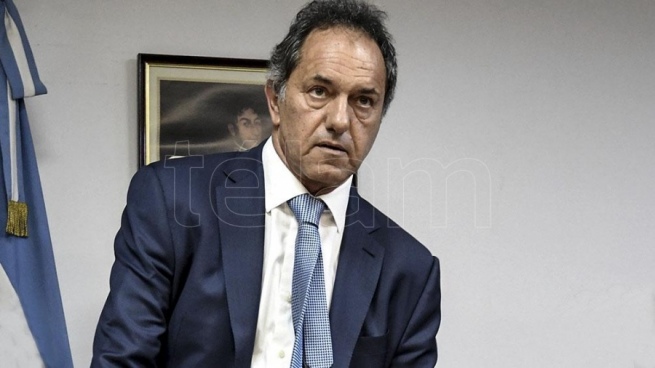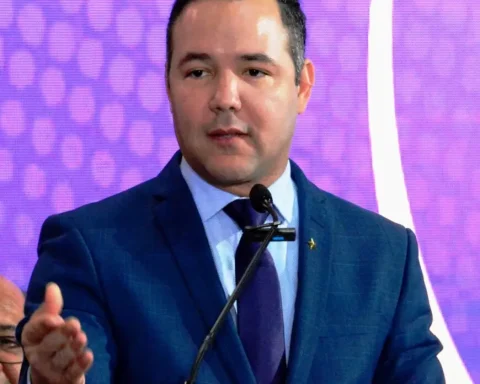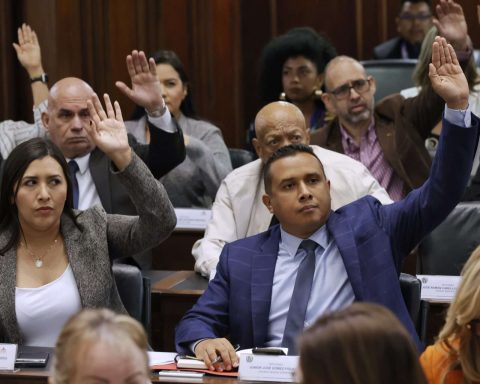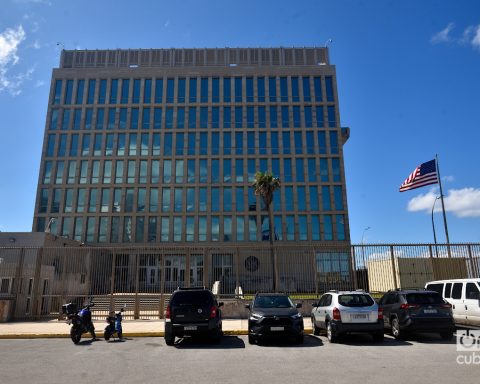The SME industrialists were satisfied with the appointment of Daniel Scioli at the head of the Ministry of Productive Development and await the current ambassador in Brazil to assume the new position to initiate contacts and present him with a series of initiatives, within the framework of the sectoral agenda.
This was stated to Télam by the president of Industriales Pymes Argentinos (IPA), Daniel Rosatoand the director of National Economy of the entity’s Observatory, Frederic Marongiu.
Rosato, president of the Plátanos Industrial Park and vice president of the Berazategui Industrial Union, highlighted the “good feeling” with Scioli, from the time he was Governor of Buenos Aires and, later, his support for SMEs from the Embassy in Brasilia , both in conducting trade missions and in efforts to facilitate exports to the neighboring country.
Meanwhile, Marongiu said that beyond the “good relationship” with the former vice president, being a new administration, “putting some initiatives into practice can take months.”
“Beyond the difficulties, the pandemic and the war, in the Government of Alberto Fernández the will to have an industrial policy is noticeable; before it was not noticeable, it could be up to you to be subsidized or not, they did not have an industrial plan at all “Frederic Marongiu
A former collaborator of Axel Kicillof when he worked at the Secretariat of Economic Policy and general manager of Nation Trusts, Marongiu has been at the IPA Observatory since February 2020, contributing his vision for the development of SMEs.
In this sense, he observed “totally different” positions between the current government and the previous one when dealing with the sectoral problem.
“Beyond the difficulties, the pandemic and the war, in the Government of Alberto Fernández the will to have an industrial policy is noticeable; before it was not noticeable, it could be up to you to be subsidized or not, they did not have an industrial plan at all “, he stated.
In this regard, Marongiu highlighted the global improvement compared to the production levels of the pandemic and in some cases higher than those of 2019, especially in the metal industries sector.
In the agenda of proposals that the industrial SMEs plan to present to Scioli once he settles in the Ministry, there is five points that stand out: Buy Argentine law; articulation of SMEs with large companies; coordination with the Central Bank to expedite input imports; energy tariff segmentation and escalation; and decoupling of interest rates.
Regarding the Buy Argentine Law, there are coincidences between the Government, SMEs, the UIA and trade unionism in supporting the modification to the current law of 2018.
Among the main changes, the possibility for the State to choose local suppliers is contemplated, provided that their price does not exceed, up to a certain limit, the proposal that a foreign company can make.
One of the differences with the opposition blocs is the formation of a trust fund, promoted in the bill and promoted by the ruling party, which in the opinion of the industrial SMEs will allow them to access the necessary financing to participate in the processes. tenders.
Regarding the articulation of SMEs with large companies, Marongiu pointed out that “The large company is constituted with SMEs that provide inputs”but in many cases they source from foreign suppliers.
“With proper articulation, an improvement could be achieved for both parties: SMEs obviously as suppliers, but also for large companies, since they would surely have cheaper inputs and without the need to resort to import procedures,” he explained.
“With proper articulation, an improvement could be achieved for both parties: SMEs obviously as suppliers, but also for large companies, since they would surely have cheaper inputs and without the need to resort to import procedures”Frederic Marongiu
The inconveniences derived from the application of communication “A” 7466 of the Central Bank (BCRA) to imports will be another of the issues to be addressed on the agenda.
From IPA it is proposed that the authorization to import does not remain exclusively in the hands of the BCRA, but that permanent consultation mechanisms be established with the Ministry of Productive Development.
“You don’t have to consider it as a competition but as a complement”Marongiu noted.
As options to overcome the shortage of dollars, Marongiu launched the possibility of “extending the swap with China” and even “looking for a swap with Brazil, which will not be as voluminous as the other, but will help unlock part of the bilateral trade with one of the our main business partners.
The energetic aspect
On the other hand, the industrial sector warned about the possible effects of increases in energy rates that, in certain cases, “reach 70% and could suffer the economic reactivation,” Rosato said.
When considering the need to reduce the weight of energy subsidies in the fiscal result, they highlighted the axes of “segmentation and staggering” of the proposal.
Regarding interest rates, Marongiu considered the rise in the Monetary Policy rate “logical”, after almost two years of immobility, but at the same time he proposed deepening the policies of subsidized rates for SMEs, in order to “unhook” them and avoid both a retraction of the activity and the transfer to prices of the financial cost.
From IPA, they ensure that the benefits of access to credit will result in income that will more than compensate the cost.


















